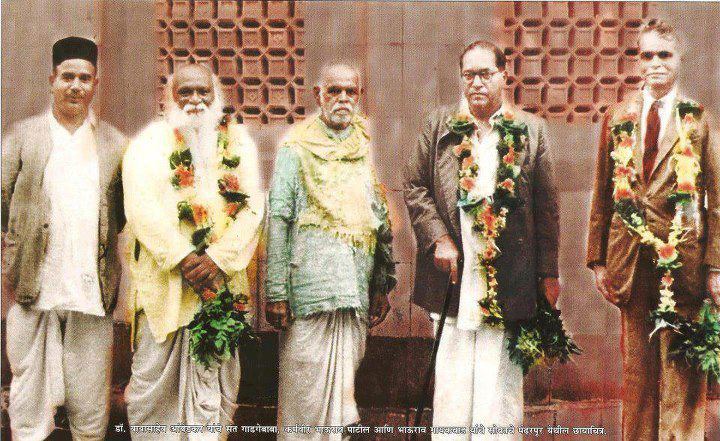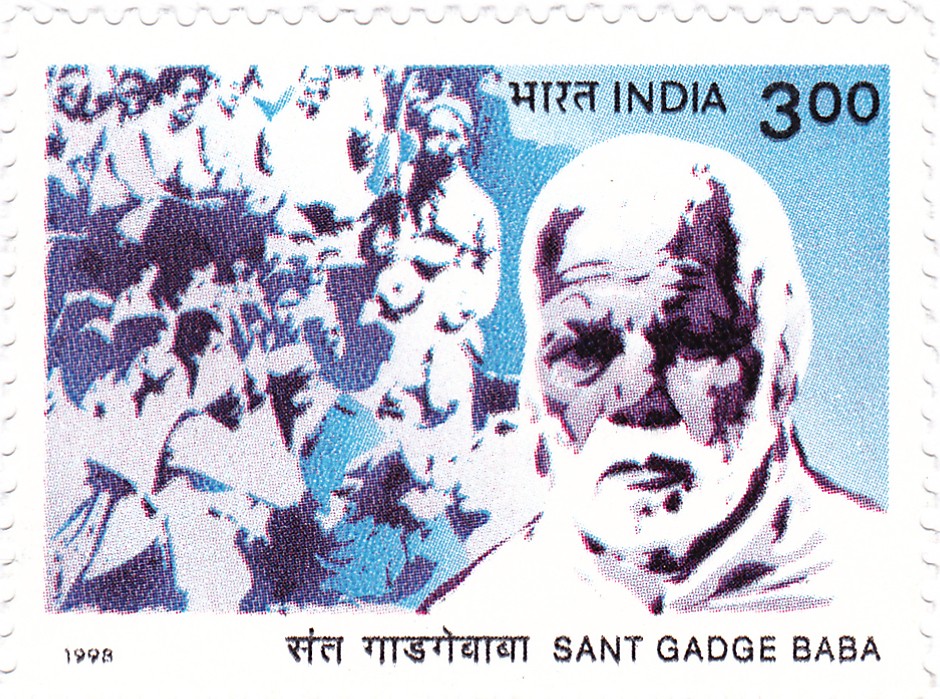
Gadge Baba and Quest For Social Justice
If you want to reduce the greatness of people you reduce them to their caste identities. This is what Brahminical frameworks have been doing. Every non-Brahminical saints or great people are reduced to their caste affiliations, while even the traitors of Shivaji’s Swarajya (Self Government) like Ramdas, have been raised to the level of Swami (lord) and Jnaneshwar as Mauli (mother).
If one reads the philosophy and study the social engagements of the great saints like Tukoba, Kabir, and Ravidas, one can easily sense that they are heads and shoulders above these saints who are so praised by the Brahminical writers. In the case of Maharashtra, the Brahmin writer, Mahipati, completely denigrated the non-Brahmin saints. But the great saints of Non-Brahmin background like Namdev forms the important voice in Sikhism.
This background is important to understand the greatness of Gadge Baba, perhaps the greatest saints in modern times who showed what it is to serve humanity. When we read about Gadge Baba, he is referred to as Parit (a washerman) who tried to clean the villages. It is true that he tried to clean the villages, but more importantly, his entire life was dedicated to cleaning the society, particularly, the cleansing of caste mind.
He left his house in his youth and he became a wanderer. He was homeless and practised meditative skills and then entered the society fully in order to serve. His teachings are in the poetic form and they communicate directly to the rural masses. He roamed all over Maharashtra teaching people the importance of humanity, love, and compassion. He highlighted social evils like caste system and degradation of women.
He was liberated from the caste as he was an enlightened person. He started hostels for the poor people in various places and though he was not schooled much, he encouraged the youths from backward classes to see education.
His friendship with Babasaheb Ambedkar was an example of deep trust and love for each other. Babasaheb Ambedkar loved Baba and his work, and there are instances when Babasaheb not only visited Baba’s hostels but also supported with money. And Baba also regarded Babasaheb Ambedkar as a living God. Once during his Kirtan he stopped and asked audiences if they ever saw a God, and the mesmerising audiences were eager to know more about the God, Baba asked them to turn their heads to see the living God, and there he was, the living God, Babasaheb Ambedkar. Baba did not preach Hinduism, but he preached enlightened humanism beyond all discriminations. He fought against untouchability. Baba was shocked and sad when Babasaheb died on 6th December 1956 and he died within the same month the same year.
As a Buddhist, I find in Baba’s teaching the great message of the Buddha. It was a time when institutional Buddhism was dead, but Buddhism was still in the memories of people and there was a hidden lineage that went on from the past. For example, the Maharashtra saint tradition was inspired by the Great saint, Sarah, who influenced saint tradition in Maharashtra. Remarkably, the saints from the non-Brahminical background have a network and a communication channel and they spoke in unison against the caste system. This anti-Brahminical anti-superstition attitude is also part of the teaching of Baba, but at the same time, Baba advocated the unity of human race, love, and care for other human beings. But his was not theoretical teaching. He took the broom and cleaned the villages himself, but most importantly he took the sword of wisdom and compassion to fight the monster of caste in his own way.
We need more Babas like Gadge Baba, when the contemporary Indian landscape is dominated by self-styled lustful media created Babas like Asaram and Ramdev. The real Baba is someone who goes to the murky social situation and cleans it with his sweat and blood. Before such a lofty and towering figure of real Baba, the self-styled contemporary Babas as in reality Anti-Babas!

On 20 December 1998, on the death anniversary of Gadge Maharaj, Department of Posts issues postal stamp in the memory of Gadge Baba.
Author – Mangesh Dahiwale, Human Rights Activist



+ There are no comments
Add yours